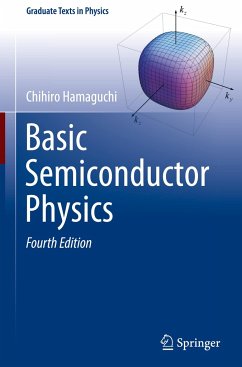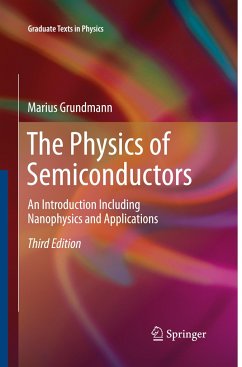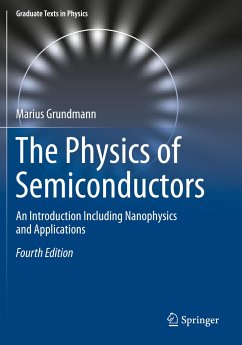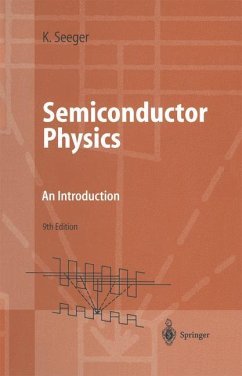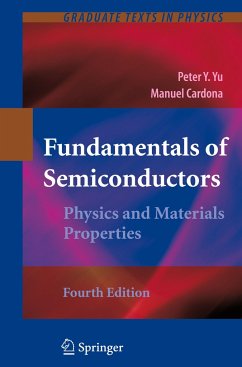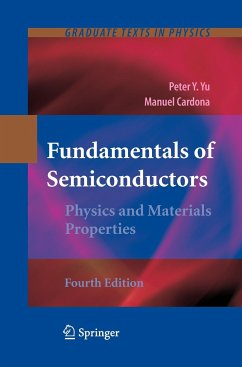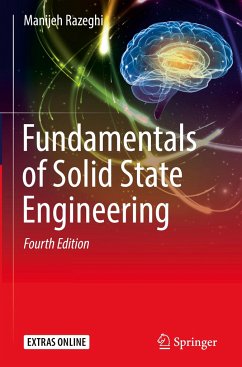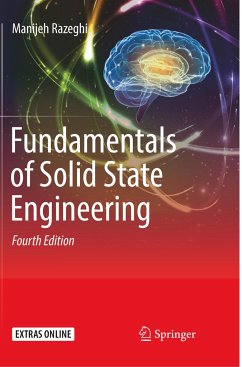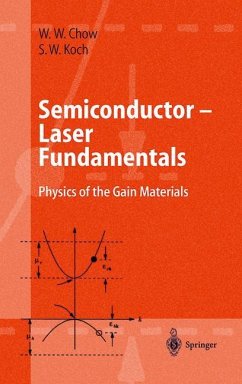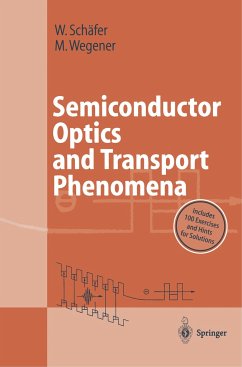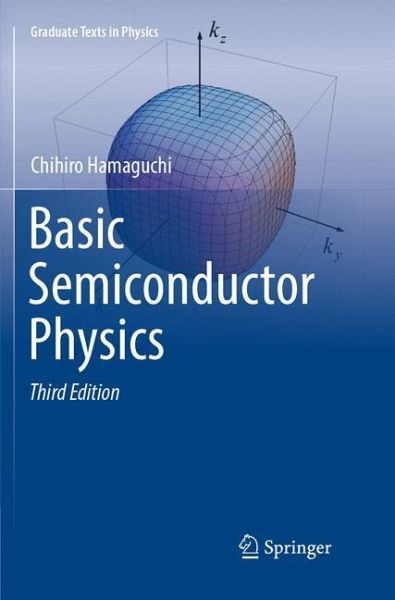
Basic Semiconductor Physics
Versandkostenfrei!
Versandfertig in 6-10 Tagen
66,99 €
inkl. MwSt.
Weitere Ausgaben:

PAYBACK Punkte
33 °P sammeln!
The new edition of this textbook presents a detailed description of basic semiconductor physics. The text covers a wide range of important phenomena in semiconductors, from the simple to the advanced. Four different methods of energy band calculations in the full band region are explained: local empirical pseudopotential, non-local pseudopotential, KP perturbation and tight-binding methods. The effective mass approximation and electron motion in a periodic potential, Boltzmann transport equation and deformation potentials used for analysis of transport properties are discussed. Further, the bo...
The new edition of this textbook presents a detailed description of basic semiconductor physics. The text covers a wide range of important phenomena in semiconductors, from the simple to the advanced. Four different methods of energy band calculations in the full band region are explained: local empirical pseudopotential, non-local pseudopotential, KP perturbation and tight-binding methods. The effective mass approximation and electron motion in a periodic potential, Boltzmann transport equation and deformation potentials used for analysis of transport properties are discussed.
Further, the book examines experiments and theoretical analyses of cyclotron resonance in detail. Optical and transport properties, magneto-transport, two-dimensional electron gas transport (HEMT and MOSFET) and quantum transport are reviewed, while optical transition, electron-phonon interaction and electron mobility are also addressed.
Energy and electronic structure of a quantum dot (artificial atom) are explained with the help of Slater determinants. The physics of semiconductor lasers is also described, including Einstein coefficients, stimulated emission, spontaneous emission, laser gain, double heterostructures, blue lasers, optical confinement, laser modes, and strained quantum well lasers, offering insights into the physics of various kinds of semiconductor lasers.
In this third edition, energy band calculations in full band zone with spin-orbit interaction are presented, showing all the matrix elements and equipping the reader to prepare computer programs of energy band calculations. The Luttinger Hamiltonian is discussed and used to analyze the valence band structure. Numerical calculations of scattering rate, relaxation time, and mobility are presented for typical semiconductors, which are very helpful for understanding of transport. Energy band structures and effective masses of nitrides such as GaN, InN, AlN and their ternary alloys are discussed because they arevery important materials for the blue light emission, and high power devices with and high frequency.
Learning and teaching with this textbook is supported by problems and solutions in the end of the chapters.
The book is written for bachelor and upper undergraduate students of physics and engineering.
Further, the book examines experiments and theoretical analyses of cyclotron resonance in detail. Optical and transport properties, magneto-transport, two-dimensional electron gas transport (HEMT and MOSFET) and quantum transport are reviewed, while optical transition, electron-phonon interaction and electron mobility are also addressed.
Energy and electronic structure of a quantum dot (artificial atom) are explained with the help of Slater determinants. The physics of semiconductor lasers is also described, including Einstein coefficients, stimulated emission, spontaneous emission, laser gain, double heterostructures, blue lasers, optical confinement, laser modes, and strained quantum well lasers, offering insights into the physics of various kinds of semiconductor lasers.
In this third edition, energy band calculations in full band zone with spin-orbit interaction are presented, showing all the matrix elements and equipping the reader to prepare computer programs of energy band calculations. The Luttinger Hamiltonian is discussed and used to analyze the valence band structure. Numerical calculations of scattering rate, relaxation time, and mobility are presented for typical semiconductors, which are very helpful for understanding of transport. Energy band structures and effective masses of nitrides such as GaN, InN, AlN and their ternary alloys are discussed because they arevery important materials for the blue light emission, and high power devices with and high frequency.
Learning and teaching with this textbook is supported by problems and solutions in the end of the chapters.
The book is written for bachelor and upper undergraduate students of physics and engineering.




